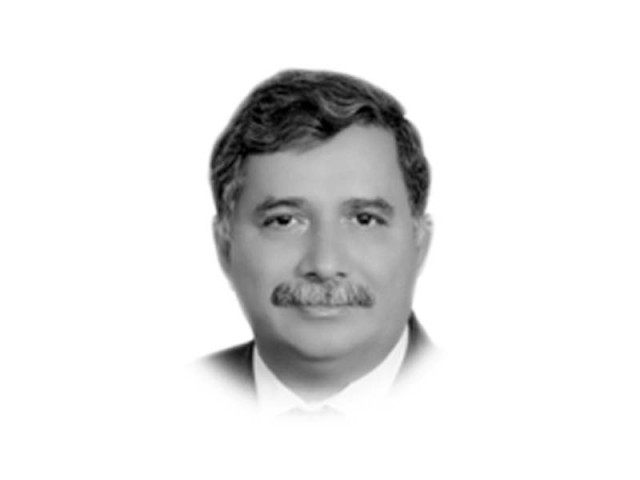Winds of terrorism
Pakistan at present is confronted with militancy and terrorism of two types, each having its own dimension.

The writer is a former Secretary to Government Home and Tribal Affairs Department and ex-IG. He currently heads Good Governance Forum and can be reached at aashah7@yahoo.com
Pakistan at present is confronted with militancy and terrorism of two types, each having its own dimension. First one is the religio-motivated militancy and the second is subnational or ethnic-based — each having its own causes and propelling factors. Pakistan has been bedeviled with the monster of militancy and extremism throughout its history since 1947 to a varying extent. It started off with the use of a tribal Lashkar by early policymakers to free Kashmir from the control of the-then ruler of Kashmir through a militant operation. Pakistan’s geopolitical location and strained relations with Afghanistan over the question of Durand Line further developed belligerent tendencies as both countries resorted to the use of militant groups across the border. The Cold War era gave an impetus to religiously-motivated radical ideologies as a way of containing Marxist ideology. The Saur Revolution in Afghanistan in 1978, followed by the entry of the Soviet Union into Afghanistan, and the US help for the Jihad movement to gain traction, and the ultimate capture of power by the Taliban strengthened militancy in the whole region.
The post-9/11 events not only had their effects on Afghanistan but also on Pakistan which had to roll back its support for the Taliban. This resulted in sustained militant extremism and a standoff between the state and such groups, labelled as non-state actors. The new roles in the changing paradigm at the world stage have pitted old friends against one another. The United States and its allies were declared infidels and the Muslims siding with them as friends of infidels as per the religious doctrine of ‘takfir’. Since then, the state has been grappling with this problem with its kinetic energy while other elements of counterterrorism and countering-extremism are missing.
The Baloch militancy is also stated to be rooted in the history of Pakistan and even beyond. The nationalistic narrative refers to the annexation of Kalat state, the betrayal of agreement with Sardar Nouroz Khan and the execution of five leaders, the operation in the 70s, the killing of Nawab Akbar Bugti, a feeling of marginalisation and treatment as a minority in their own province under the guise of the development of Gwadar, managed elections, human rights violation and avoidance of due process of law. Baloch leaders believing in parliamentary democracy argue that interference in elections and picking up elements of choice provide impetus to such elements, providing them enough material to abandon the path of political process and resort to armed movement.
While the religio-motivated militancy is transnational, transcending boundaries, ethno-based militancy is confined to the geographical boundary. Both types have different dimensions but pose existentialist threat to the state and need short- and long-term strategies for tackling them. While the right of the state to use force against insurgents is always an option, what is more desirable is to find a political solution to subnational movements. The Baloch problem can be resolved by understanding the psyche of subnational groups by reading their history, culture, poetry, novels, short stories, music and socio-economic conditions. Along with these, are the elements of provincial autonomy, allocation of resources, inter-province migration, language and culture, a sense of participation in the political affairs of Pakistan and enjoyment of fundamental rights that have deeply influenced their minds, in particular intelligentsia. Opposition to the centralisation of powers right — starting from the accession of Kalat state — has been their rallying point. Feeling of deprivation and exploitation is rampant as the locals argue that the natural gas has been taken to all corners of the country but not to the Baloch, and that they have been kept in the dark over the matters of Reko Diq and Saindak. Overarching role of the Apex Committee, according to them, has made the political government a stooge and an instrument of encroachment on the provincial autonomy.
The government must prioritise human development directed towards the full empowerment of local people, and their recognition as stakeholders in the decision-making process. Their interests must be placed at the top of the agenda so that the fruits of progress enrich them. Simultaneously, civil society organisations should be allowed to visit the areas of deprivation. This will help in establishing a channel of communication. At the same time, olive branch may be offered to the belligerent as has been in the case of the Taliban in Afghanistan. On the political side, the Senate may be made powerful and a conducive environment may also be provided for political participation of genuine leaders, without the meddling of any of the apparatus of the state. Religiously-stirred militancy can by tackled by eliminating the use of religion to whip up emotions, adopting a policy of peaceful coexistence, ironing out differences with neighbours, and discouraging the growing role of fundamentalists on the fringes of our borders.
Published in The Express Tribune, May 29th, 2019.
Like Opinion & Editorial on Facebook, follow @ETOpEd on Twitter to receive all updates on all our daily pieces.















COMMENTS
Comments are moderated and generally will be posted if they are on-topic and not abusive.
For more information, please see our Comments FAQ